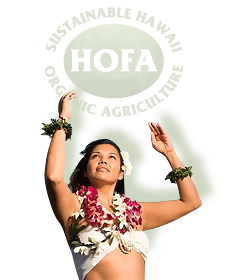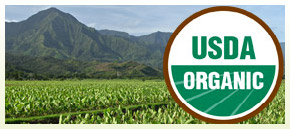Western United States Agricultural Trade Association (WUSATA)
USDA-Natural Resources Conservation Service (NRCS)
Farm Service Agency
Environmental Quality Incentives Program (EQIP) Support for Organic Growers
NRCS Conservation Stewardship Program
Farm Bill Program Assistance
Whole Foods’ Local Producer Loan Program
Western United States Agricultural Trade Association (WUSATA)WUSATA is a non-profit trade association comprised of 13 state-funded agricultural promotion agencies. In conjunction with member organizations, WUSATA administer programs funded in part through the USDA/FAS Market Access Program (MAP) that help small agribusinesses to grow their global markets.
Services include:
• trade events and activities that target markets around the globe
• 50% cost reimbursement on international marketing expenses ( Fund Match Program ), and
• Export education seminars and one-on-one meetings with an international marketing consultant ( Export Education Program ).
The site is a great place to locate volumes of information about programs, services, and resources that can help you to reach new markets.
Over 24 yrs of Export Experience The Western United States Agricultural Trade Association, also known as WUSATA, is a non-profit organization that promotes the export of food and agricultural products from the Western region of the United States. WUSATA, in conjunction with its 13 member states, provides a wide range of services to facilitate trade between local food companies and importers around the world. With 24 years of foreign market development experience, WUSATA has developed solid contacts with major supermarket retailers, food importers and distributors, and food service establishments in countries around the globe. Supported by Federal and State Funds WUSATA combines federal, state, and industry resources to carry out programs that help to increase exports of Western U.S. high-value food and agricultural products. WUSATA Generic Program activities are directed by 13 State Departments of Agriculture, and are funded through contributions from the Foreign Agricultural Service branch of the USDA, the State Departments of Agriculture, and private firms. Helping U.S. Ag-Exporters WUSATA is a vital link between international food buyers, Western U.S. suppliers, state agricultural agencies, and the U.S. government. Our services and activities include:
• export promotion,
• customized export assistance,
• a reimbursement funding program,
• international trade exhibitions,
• overseas trade missions,
• export seminars,
• in-country research, and
• point-of-sale promotions in foreign food chains and restaurants.
Additional information about these and other WUSATA services can be found throughout the WUSATA website.
USDA-Natural Resources Conservation Service (NRCS)
The USDA-Natural Resources Conservation Service provides technical and programmatic opportunities for organic producers.
Their mission is to help producers address natural resource concern on their farming operations and they have funds dedicated for producers who are organic or who are transitioning to organic production. Their website (click here) provides additional information, or you may contact Adam Reed directly:
Adam Reed
Water Quality Specialist/Agronomist
NRCS Pacific Island Area
300 Ala Moana Blvd., Room 4-118
Honolulu, HI. 96850-0050
Phone: 808-541-2600 ext. 134
www.pia.nrcs.usda.gov For producers to learn more they are invited to visit with one of the 7 field office across the state. Field Office locations and contact information can be found by clicking here.
Farm Service Agency
USDA Farm Service Agency (FSA)
Mission
Farm Service Agency is equitably serving all farmers, ranchers, and agricultural partners through the delivery of effective, efficient agricultural programs for all Americans.
Agency/Internal Vision
A customer-driven agency with a diverse and multi-talented work force, dedicated to achieving an economically and environmentally sound future for American Agriculture.
Societal/External Vision
A market-oriented, economically and environmentally sound American agriculture delivering an abundant, safe, and affordable food and fiber supply while sustaining quality agricultural communities.
Values
The foundation of FSA‘s mission and vision rests upon the USDA’s long-standing core values of:
Strong Ethics
Customer Service
Team Work
Inclusive Decision-Making; and
Fiscal Responsibility.
Environmental Quality Incentives Program (EQIP) Support for Organic Growers
EQIP Organic Home Page
Information at Organic Farming Research Foundation (OFRF)
Environmental Quality Incentives Program (EQIP) was reauthorized in the Farm Security and Rural Investment Act of 2002 (Farm Bill) to provide a voluntary conservation program for farmers and ranchers that promotes agricultural production and environmental quality as compatible national goals. EQIP offers financial and technical help to assist eligible participants install or implement structural and management practices on eligible agricultural land.
In addition, the 2008 Farm Bill included provisions for use of EQIP to provide opportunities for organic growers as well as requirements related to adherence to National Organic Program (NOP) requirements and new program payment limitations.
Organic Technical and Support Information
EQIP Organic Correlation Matrix
NRCS Organic Technical Support
NRCS Conservation Stewardship Program
Conservation Stewardship Program
FOR FULL INFORMATION VISIT THE CSP HOMEPAGE
USDA Urges Landowners to Sign Up Now for Conservation Stewardship Program
Introduction
The Conservation Stewardship Program (CSP) is a voluntary conservation program that encourages producers to address resource concerns in a comprehensive manner by: • Undertaking additional conservation activities; and
• Improving, maintaining, and managing existing conservation activities.
CSP is available on Tribal and private agricultural lands and non-industrial private forest land in all 50 States and the Caribbean and Pacific Islands Areas. The program provides equitable access to all producers, regardless of operation size, crops produced, or geographic location. The Secretary of Agriculture has delegated the authority for CSP to the NRCS Chief.
Program Description
Through CSP, NRCS will provide financial and technical assistance to eligible producers to conserve and enhance soil, water, air, and related natural resources on their land. Eligible lands include cropland, grassland, prairie land, improved pastureland, rangeland, nonindustrial private forest lands, agricultural land under the jurisdiction of an Indian tribe, and other private agricultural land (including cropped woodland, marshes, and agricultural land used for the production of livestock) on which resource concerns related to agricultural production could be addressed. Participation in the program is voluntary. CSP encourages land stewards to improve their conservation performance by installing and adopting additional activities, and improving, maintaining, and managing existing activities on agricultural land and nonindustrial private forest land. The NRCS will make CSP available nationwide on a continuous application basis. The entire operation must be enrolled and must include all eligible land that will be under the applicant’s control for the term of the proposed contract that is operated substantially separate from other operations. CSP offers participants two possible types of payments:
1. Annual payment for installing and adopting additional activities, and improving, maintaining, and managing existing activities
2. Supplemental payment for the adoption of resource-conserving crop rotations
Pacific Islands Area CSP Contacts:
Michael Whitt
CSP Program Manager
Phone: (808) 541-2600 x 153
Email: Michael.Whitt@hi.usda.gov
Farm Bill Program AssistanceApplications are being accepted from farmers and ranchers for three different Farm Bill Programs that are administered by the United States Department of Agriculture’s Natural Resources Conservation Service (NRCS). The three programs include Environmental Quality Incentives Program (EQIP), the Wildlife Habitat Incentive Program (WHIP), and Agriculture Management Assistance (AMA).
Financial assistance is available through EQIP to agricultural producers who are willing to implement conservation measures which treat the targeted natural resource concerns on their land (including forestry, organic farming, and energy conservation). WHIP provides technical and financial assistance to improve fish and wildlife habitat. Previously, AMA was available in 15 states and Hawaii was just added as a qualifying state. This program addresses water management, erosion control, and integrated pest management.
Applications are accepted year-round for these three programs. Previous applications that were not selected/funded in the prior ranking cycle will be included for the following deadline. Interested farmers and ranchers are asked to call their local NRCS Field Office for more information. To find the office nearest you, visit www.pia.nrcs.usda.gov .
USDA is an equal opportunity employer and provider.
Whole Foods’ Local Producer Loan ProgramContact:
WFM online Whole Foods Market is committed to the concept of fresh, healthy, local foods. Since the beginning, we have remained committed to supporting local products and the people who supply them. In addition to featuring local products in our stores, we’re putting our money where our mouths are by providing up to $10 million in low-interest loans to independent local farmers and food artisans. We’re proud to support small producers who need a hand, not a handout, to help them make their dreams reality.
The Program:
Strengthens the partnerships between Whole Foods Market and local producers
Works with producers to expand the availability of high-quality local products for our customers
Supports the communities where Whole Foods Market does business
Reinforces Whole Foods Market’s commitment to environmental stewardship
For more info visit WFM online




